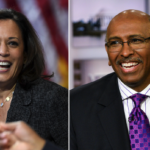Disney’s investors are not happy with the company’s decision to prioritize “woke” themes over profit. Activist investor Nelson Peltz, who is vying for two seats on Disney’s board, slammed the entertainment giant for its recent Marvel superhero films, saying that moviegoers “don’t go to theaters to get a message.”
In an interview with The Financial Times, Peltz questioned whether Disney CEO Bob Iger and Marvel Studios chief Kevin Feige have forgotten why people go to the movies. He specifically called out the female-led “The Marvels” and the “Black Panther” films, asking, “Why do I have to have a Marvel that’s all women? Not that I have anything against women, but why do I have to do that? Why can’t I have Marvels that are both? Why do I need an all-black cast?”
Nelson Peltz, the activist investor trying to win two Disney board seats, questions Kevin Feige’s track record and says Disney’s current strategy is ‘woke’
“Why do I have to have a Marvel that’s all women? Not that I have anything against women, but why do I have to do that?… pic.twitter.com/YcdDy88kGx
— Culture Crave 🍿 (@CultureCrave) March 25, 2024
Peltz’s comments echo those of former Marvel Entertainment chairman and CEO Ike Perlmutter, who was recently let go from Disney after massive cost-cutting measures. Perlmutter, who is a friend of Peltz, previously expressed similar concerns about the company’s direction.
It’s clear that the “woke” frenzy has taken over Disney, with female and minority representation seemingly more important than box office success. But at what cost? Peltz rightly points out that people go to the movies to be entertained, not to receive a political message.
“People go to watch a movie or a show to be entertained,” Peltz told the outlet. “They don’t go to get a message.”
Yet, Disney seems determined to shove their agenda down the throats of moviegoers, even at the risk of alienating their core audience.
Perlmutter even admitted that his firing resulted from “fundamental differences” with Disney’s leadership. So it’s not surprising that he “long expected” his working relationship with Disney to end. It’s a shame that the company’s largest individual shareholder was let go simply because he dared to challenge their agenda-driven approach.
Disney responds: pic.twitter.com/j4u64509X5
— Culture Crave 🍿 (@CultureCrave) March 25, 2024
And it’s not just in the movies. Disney’s recent decision to remove offensive scenes from classic films, such as “Song of the South,” shows that they are more interested in being politically correct than staying true to their original content. This constant pandering to the overly sensitive social justice warriors only hurts Disney’s reputation and brand.
Meanwhile, as Disney continues down this path of political correctness, its stock prices have been falling, and it has been forced to make significant cuts to its workforce.
It’s time for Disney to wake up and realize that their shareholders and customers are not interested in political messaging or social justice activism. They want to be entertained. Will Disney listen to their investors or continue down this destructive path? Only time will tell.








